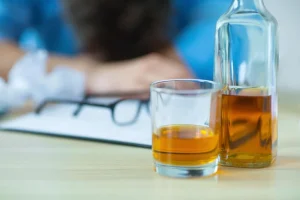Chưa có sản phẩm trong giỏ hàng.
Sober living
The Benefits of Group Therapy in Addiction Recovery

Recovery is a gradual process that requires patience and self-kindness. This topic emphasizes the importance of self-compassion, helping members avoid self-criticism and recognize that setbacks are part of the journey. Of course, it’s crucial to tailor activities to the specific needs and preferences of each group. The key is to maintain a spirit of openness and flexibility, always ready to adapt and innovate. Imagine groups racing to identify and challenge negative thoughts, passing the baton of positivity from one member to another.
- This activity involves helping members create a self-care plan that includes physical, emotional, and mental activities, such as exercise, relaxation, and setting personal boundaries.
- Our team of licensed medical professionals research, edit and review the content before publishing.
- The term “support group” can be defined as a recovery modality designed to foster a sense of community among peers during and after drug and alcohol rehab.
- This activity not only helps clarify goals but also serves as a powerful motivational tool.
- It’s a playful way to practice being present in the moment – a crucial skill in managing cravings and stress.
Music Therapy
A structured routine offers stability, helping individuals focus on positive habits. This topic helps members design daily schedules that include self-care, work, and relaxation. Creating a routine provides a sense of purpose and reduces the chances of falling back into unhealthy patterns. Practicing gratitude can improve mood and reduce stress, aiding recovery.
Moving and Breathing: Physical and Mindfulness Activities
They break down the walls of isolation that addiction often builds, fostering a sense of belonging and community. Participants realize they’re not alone in their struggles, which can be incredibly group activities for addiction recovery validating and empowering. And for the theatrically inclined, drama therapy provides a stage for practicing coping skills. Role-playing scenarios allow individuals to rehearse responses to triggering situations in a supportive environment.

Exercise and Physical Activity
- This activity can bring clarity, reinforce personal resolve, and foster understanding with those who matter most.
- Therapists who run these groups are very resourceful and in order to keep the process relatively fresh introduce different activities and topics continually.
- Activities in a group setting keep clients engaged and help them build bonds with peers.
- It’s like a literary tapestry, woven with threads of struggle, triumph, and everything in between.
- Much like music, artistic activities can help people relax and focus on something soothing, which aids in recovery and healing.
This activity helps put the recovery journey into perspective and gives participants a sense of progress and direction. These mindfulness activities aren’t just about relaxation – they’re about developing a new relationship with thoughts and feelings. By learning to observe their inner experiences without getting caught up in them, participants can gain a sense of control and perspective that’s invaluable in recovery. ChoicePoint aims to improve the quality of life for people struggling with substance use disorder and mental health issues.

Activity 1: Art Therapy Workshops
- But how exactly do these group therapy activities promote healing and personal growth?
- This might involve brainstorming possible difficulties, discussing strategies for overcoming them, and creating backup plans.
- Take the first step toward addiction treatment by contacting us today.
- Through this activity, you can encourage your participants to say no to drug use clearly.
- We provide detox and residential addiction treatment to individuals from all across the United States.
- Mindfulness and meditation are essential practices in managing addiction.
To find another treatment program, browse the top-rated addiction treatment facilities in each state by visiting our homepage, or by viewing the SAMHSA Treatment Services Locator. The helpline at AddictionResource.net is available 24/7 to discuss the treatment needs of yourself or a loved one. This helpline is answered by Treatment X LLC, an addiction treatment provider with treatment facilities in Ohio, Pennsylvania, and California. Self-care includes creating a sleep routine, eating healthy meals, staying hydrated, exercising, and spending time with loved ones. People can openly share their thoughts and feelings, reduce self-stigma and shame, and help each other process and grow from difficult experiences or emotions. They are often available at addiction treatment centers but can also be found at community centers or in other public locations.


